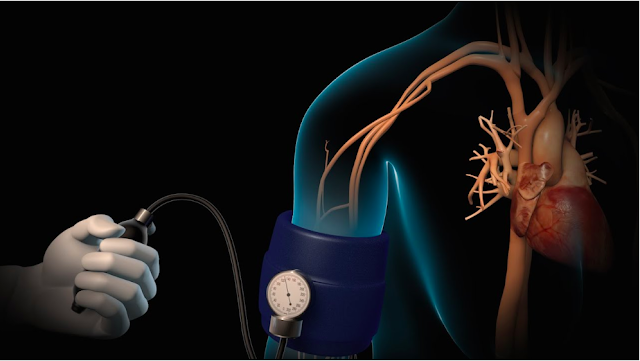The force of your blood against the walls of your arteries is frequently too strong when you have high blood pressure, also known as hypertension. The blood vessels known as arteries transport blood away from the heart so that it can provide your tissues with oxygen and nutrients. With each beating, two chambers of your heart known as the ventricles contract, pushing blood through your arteries and into your lungs. Your arterial walls’ pressure is influenced by three key variables when blood passes through them. The first is cardiac output, which is the volume of blood that your heart’s ventricles pump out each minute. The increase in cardiac output raises blood pressure. Blood volume, or the total volume of blood in your body, is the second component that affects your blood pressure. As blood volume rises, blood pressure likewise rises. Resistance, defined as anything obstructing blood flow through your arteries, is the third component that influences blood pressure.
The causes of resistance are many. Your arterial wall’s elasticity is one aspect that contributes to resistance. Each heartbeat causes healthy arteries to dilate, which lowers the pressure of blood against the wall. Your arteries’ diameter is another element that affects resistance. Your body has the power to change the diameter of your arteries to lower blood pressure or increase blood pressure. The viscosity or thickness of the blood is a third resistance element. More particles in your blood, such as proteins and fat, make it viscous. Your blood pressure increases when your heart works harder to push thicker blood through your arteries.
A sphygmomanometer, often known as a blood pressure cuff, is a device that can be used to measure your blood pressure. Systolic pressure refers to the force exerted by blood against the walls of your arteries as your heart beats. Diastolic pressure refers to the force exerted on the arterial wall as your heart slows down between beats. While the value of your systolic and diastolic blood pressure may fluctuate during the day, they should typically be less than 120 and 80 millimetres of mercury, respectively. You have high blood pressure if your systolic or diastolic pressure routinely remains above 140 or 90, respectively. Your artery walls will deteriorate over time as a result of elevated blood pressure. Your artery wall could deteriorate and develop an aneurysm, which is an expansion. Or the wall could break and cause bleeding into the nearby tissue. Plaques, which are a buildup of cholesterol, fat, and calcium in your blood, can form as a result of small rips in the arterial wall. Your artery’s blood flow reduces as the plaque gets bigger. Blood cells can adhere to the plaque and gather into solid masses known as clots, which can fully or partially stop your blood flow. Because your heart has to work harder to beat, artery damage causes your blood pressure to rise even higher.
Kidney disease, a heart attack, and other illnesses are brought on by artery damage and restricted blood flow. Hypertension, or elevated blood pressure, typically has no identified cause. Primary or essential, hypertension is the term used to describe this kind of high blood pressure. A healthy diet and other lifestyle modifications are part of the treatment for essential hypertension. Your doctor might advise cutting back on salt and highly processed meals if you are sensitive to the sodium in salt. Your body may retain water as a result of sodium, which raises your blood pressure and blood volume. Additionally, avoiding excessive alcohol consumption, engaging in regular exercise, decreasing weight if you are overweight, and quitting smoking are all lifestyle modifications that can lower blood pressure. To assist lower your blood pressure, your doctor can also advise drugs that affect your heart, blood vessels, or kidneys. Diuretics, often known as water tablets, encourage your kidneys to excrete more water and salt through urine, which lowers blood volume and pressure. By lowering your heartbeat’s frequency and the force of its contractions, beta-blockers lessen the strain on your heart. Numerous medications work to lower your blood pressure by relaxing your blood vessels, which increases the width of your blood vessels. These medications include direct-acting vasodilators, calcium channel blockers, ACE inhibitors, and angiotensin II receptor blockers.
Related Searches:
what causes high blood pressure in young adults, how to reduce high blood pressure, high blood pressure symptoms, high blood pressure range, high blood pressure young female, hypertension treatment, what causes high blood pressure in women
List of Tags:
3D, medical, animation, high blood pressure, hypertension, artery, vasodilator, beta blockers, calcium channel blockers, plaque, sodium, salt, Medical, Health, blood pressure, heart, patient engagement, cardiology, nucleus medical media.
